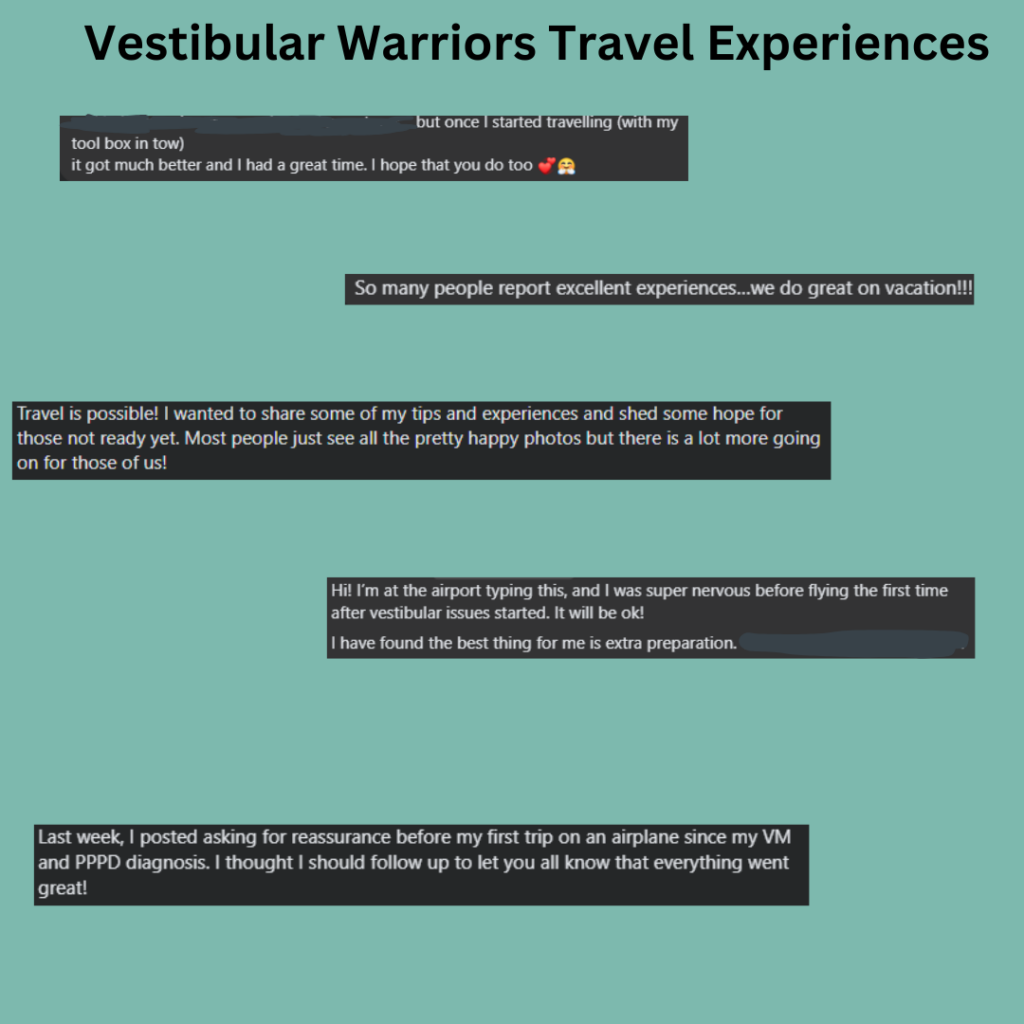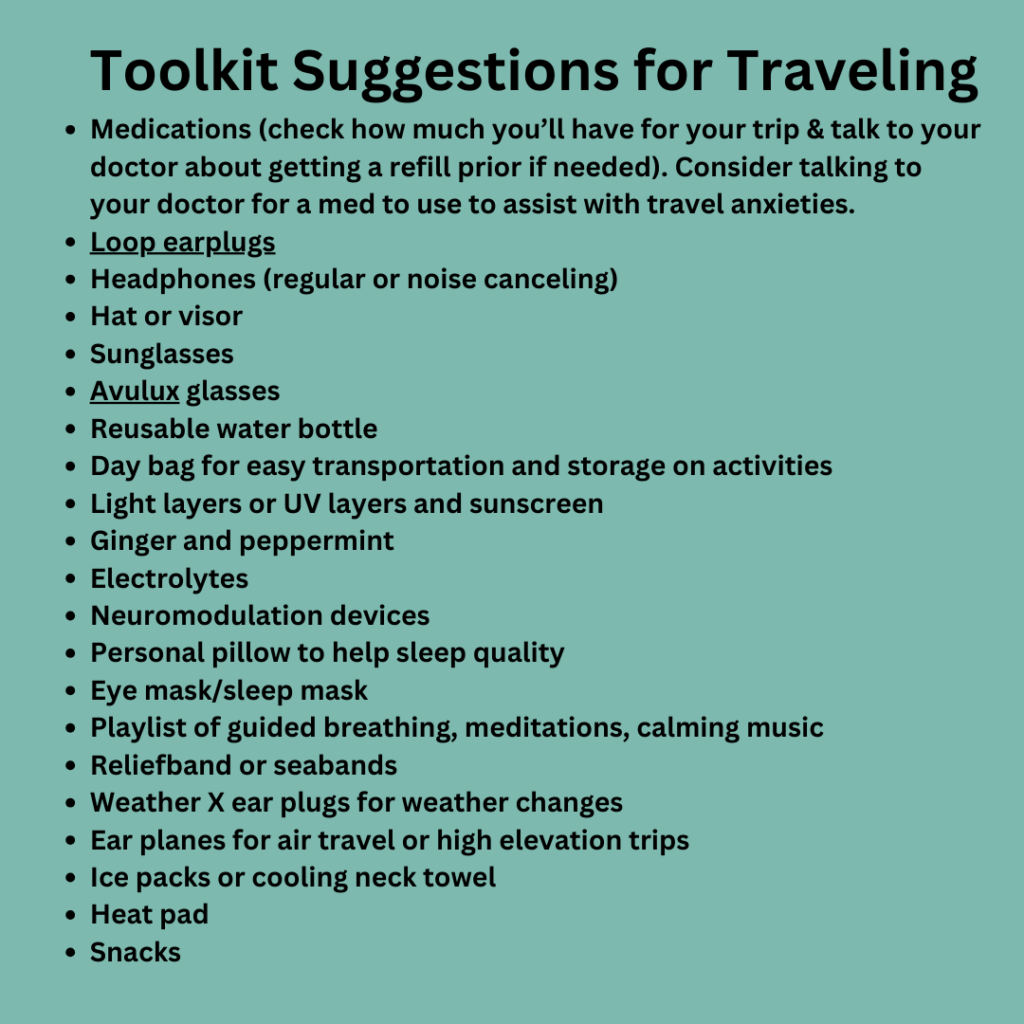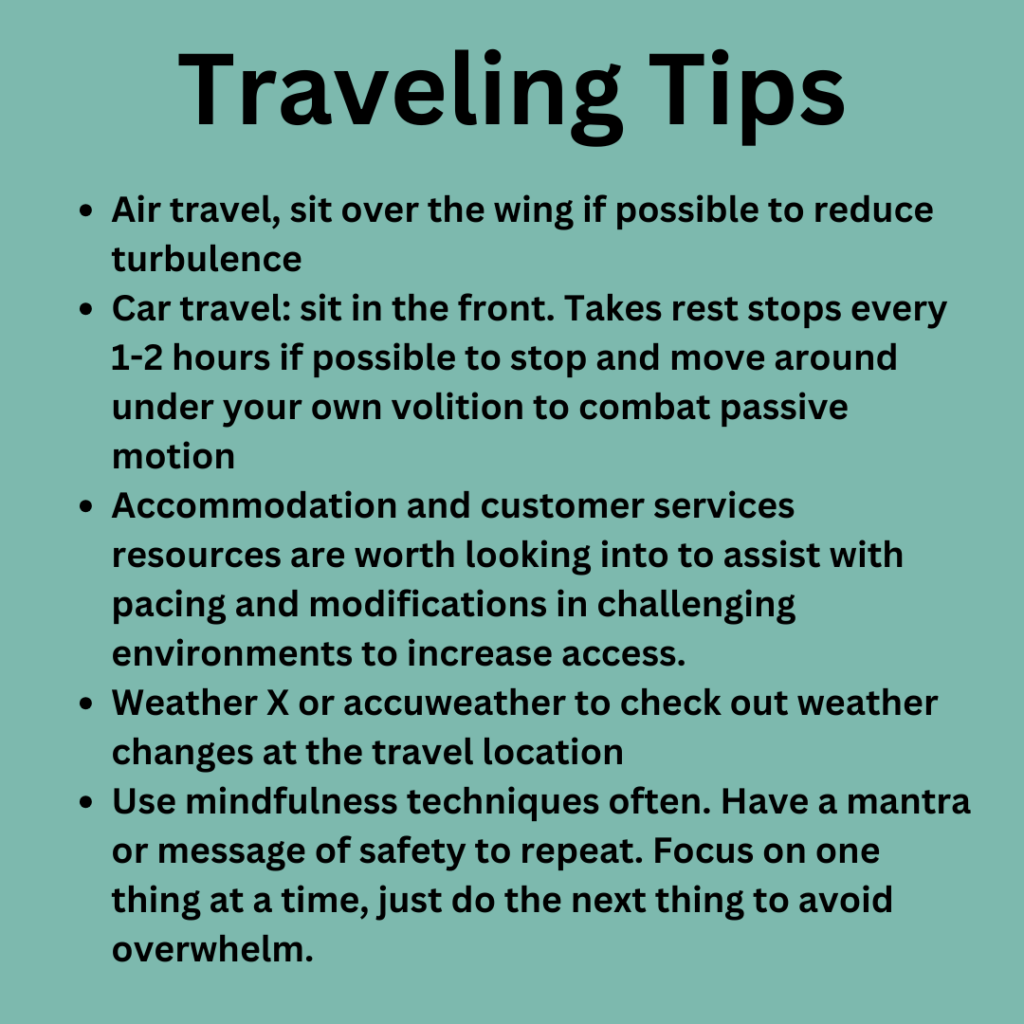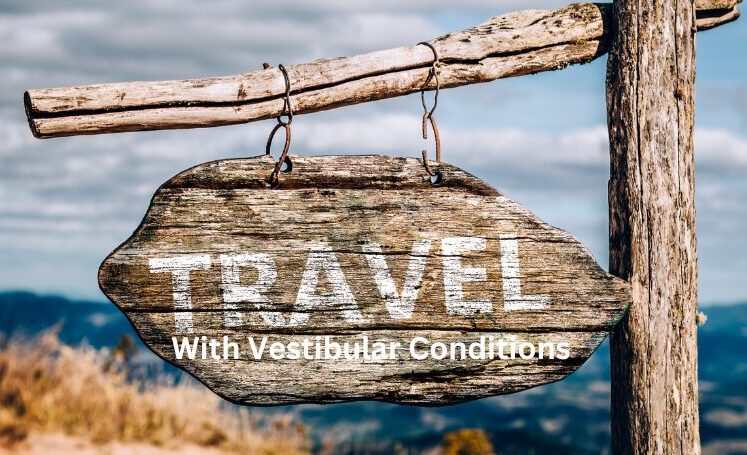Traveling with Vestibular Conditions: 5 Tips to Enjoy Your Trip
Traveling with vestibular conditions initially sounds daunting. It can be done. It can even be a trip that’s enjoyable! Proper planning and strategies can and has given vestibular warriors the tools and confidence to enjoy a fulfilling trip. This blog post explores common travel challenges for those with vestibular disorders and offers five practical tips to help you make the most of your journey.
But First, Some Proof: Successful Traveling with Vestibular Conditions

Vestibular warriors have been sharing tips, tricks, and wins on their travel adventures in Vestibular Group Fit. Here are some quick phrases that do show that travel and an enjoying your time on a trip is possible. Preparation and having tools and strategies is key. Read on to learn more how others prepare.
Anticipate Possible Challenges to Help Strategize Preparations
One reminder others have found helpful is to remember you are not alone. Thoughtful planning, coordination, and care goes into most, if not all, trips. Factoring in areas to support a vestibular condition is a new and additional consideration that does take additional time and energy when planning a trip. We are here to try and take guess work out of it. This will improve with time and experience to tailor things to best fit your needs. Having a list of travel reminders as part of packing and travel prep will help smooth out this process even further. Traveling with vestibular conditions has been done by others and can be done by you too!
Possible challenges include:
- Motion sensitivity/visual vertigo from different travel mediums (car, train, plane, boat)
- Time zone changes
- Early or late flights disrupting sleep
- Change in movement routine (travel days more stationary, maybe vacation destination with a lot of walking or other activities)
- Change in typical diet/hydration routine
- New environment (different sleeping arrangements, new noises, bright lights)
- Weather patterns or new weather conditions
- unexpected events can increase fatigue or stress
Keeping in mind possible challenges can help with prepping strategies and solutions when planning a trip and traveling with vestibular conditions. Some strategies can be utilized leading up to a trip, others will be strategies to use during travels.
A gentle reminder that traveling has its challenges for everyone and some strategies you might have done to ease these challenges can still be great tools to continue using. These sometimes inherent or universal challenges to traveling is also part of why it can be harder with a vestibular condition. This is where threshold theory can be a helpful framework. Everyone in the group challenging may be experiences the same stressors, but everyone has different thresholds as to how much those stressors will impact them.
Being kind to yourself, and prepping to best support your body and get a bigger threshold is one way to help strategize and the basis for some of the tips below. If you’re interested in more on threshold theory, check out this post here.
5 Tips for Traveling with Vestibular Conditions
- Stick to your routine the best you can leading up to travel. Try to incorporate supportive habits to increase your threshold and build resilience to a day of travel. Trying to stick to your typical routine the day of travel can be helpful too-modifications may be needed (lighter workout or gentle movement to conserve energy and pacing for traveling)
- Start packing early. If there are items used frequently, keep in the suitcase to avoid forgetting it. based on weather and activities, gradually pack items to avoid feeling rushed or forgetting something. Consider adding snacks for travel days to this packing list as well
- Build in rest time in your trip. Building in a rest day or low key activities the day after travel gives the body more time to adjust and gently get back into routine. Try to space out big activities throughout your trip itinerary to build in time for relaxation. During travel days, check in often to work on breathwork, mindset, meditation to pace and find calm throughout the day.
- Prep a toolkit. Have typical tools for symptoms, stopping attacks, supplements and items that help improve ones threshold packed and make sure to have enough for the entire trip. Special considerations for items based on travel and the trip as well. More suggestions below.
- Utilize accommodation services and resources. If long lines are challenging, traveling large campuses or airports that are unfamiliar, utilize resources built to help you! This can look like help getting to an airport gate, a less crowded and quite route to go through security, checking into a hotel on a lower floor to reduce elevator use or high views, or having medical clearance to bring personal snacks and water into even spaces.
- Check and see if your airport is part of the Hidden Disabilities Program
- If planning long term for an upcoming trip, consider gradually scaling mindfulness practice, balance, movement, visual and vestibular work to increase tolerance and confidence in your travels or specific travel activities.


Traveling with vestibular conditions may require extra planning and adjustments, but it doesn’t mean you have to miss out on the joy of exploring new places. By understanding your triggers, packing thoughtfully, and pacing yourself, you can create a travel experience that is both enjoyable and manageable. With the right mindset and preparation, the world is yours to discover—one step at a time. Happy travels!
Want to learn more about dizziness and other vestibular tools from the experts and be a part of a supportive community to get back to your daily life? Find out more at this link here.
Disclaimer
Remember: this post is for informational purposes only and may not be the best fit for you and your personal situation. It shall not be construed as medical advice. The information and education provided here is not intended or implied to supplement or replace professional medical treatment, advice, and/or diagnosis. Always check with your own physician or medical professional before trying or implementing any information read here.






